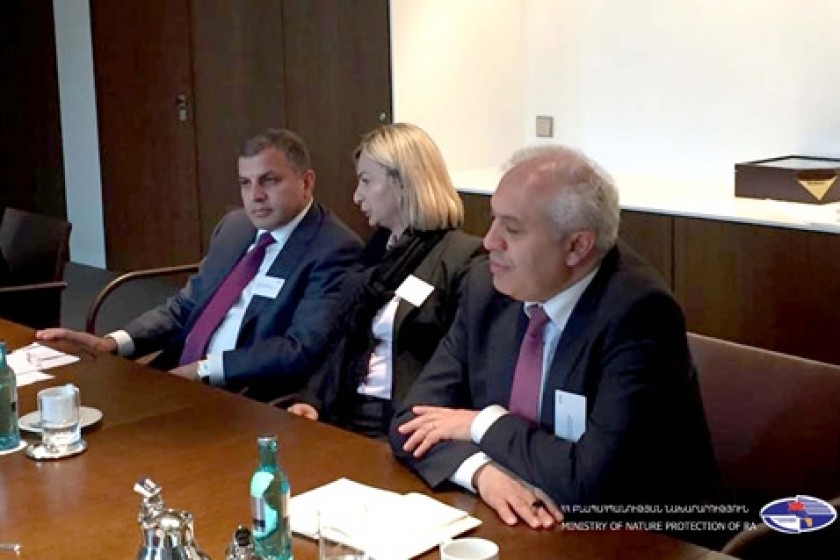
Armenia's Environment Minister In Berlin for Talks with German Development Bank
Armenian Minister for Nature Protection Aramayis Grigoryan yesterday met with members with the board of the German government owned KfW Development Bank.
Minister Grigoryan and the KfW board members discussed on-going projects in Armenia financed by the bank and paid particular attention to third stage of the “Project to Assist Protected Areas in Armenia” for which the bank has allocated 8.250 million Euros.
The minister is now visiting Germany in an official capacity at the invitation of the KfW to participate in the 15th anniversary celebrations of “Support Caucasian nature” program.
As regarding future projects, Minister Grigoryan noted that the Armenian government has set its sights on the installation of an automated and centralized water utilization system for the Ararat Valley and the drafting of a management plan for six Armenian water reservoirs.
The following appears on the KfW website regarding its engagement in Armenia:
“One of Armenia's key resources is water, which is used extensively. In the past, however, this has led to environmental problems: the largest lake in the country, Lake Sevan, for example, has shrunk to half its size. KfW Development Bank is therefore helping Armenia to establish a reliable water supply. Other priority areas are the expansion of the financial sector, securing the sustainable supply of energy and nature conservation.
The Caucasus is one of 25 global and one of two European biodiversity hot spots. To preserve this unique natural environment for future generations, KfW Development Bank, on behalf of the Federal Ministry for Economic Cooperation and Development (BMZ), supports the protected areas of Armenia under what is known as the "3-pillar model". The first pillar focuses on identifying new protected areas and strengthening existing ones. To ensure that the three countries exchange their expertise, KfW Development Bank supports their platform, the "Transboundary Joint Secretariat" (TJS). The TJS forms the second pillar and promotes harmonization of nature conservation programs in Armenia, Azerbaijan and Georgia. The third pillar serves to ensure the financial viability of the protected areas in the long run. The operation of these areas cannot be completely covered by the national budget. This financial gap is partially filled by the regionally oriented "Caucasus Nature Fund" (CNF), which is primarily funded by BMZ via KfW Development Bank.”
Photo: Minister Grigoryan on far left
 Videos
Videos Photos
Photos




Write a comment